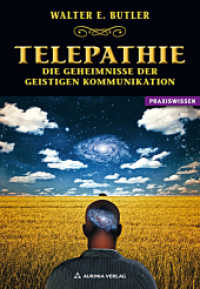- ホーム
- > 洋書
- > 英文書
- > History / World
Full Description
In 1971, the French government announced a massive extension of its military base on the Larzac plateau in southern France. Land was to be expropriated from 107 farms around the small town of La Cavalerie. Limited resistance was expected, but what happened next exceeded all expectations.
Local sheep farmers set up protest camps and occupied the land. They soon attracted an astonishing level of support, pioneering a form of regional radicalism with global implications. Drawing out the international dimensions of the protest, Make cheese not war explores a transnational resistance movement in the 1970s that challenged dominant visions of modernity and became a wellspring of radical alternatives. Exploring previously unconsulted archives in France and elsewhere, the book offers an in-depth analysis of the decade-long peasant movement and its aftermath.
Repositioning the Larzac struggle within a wider network of French and international solidarities, from the US to the UK, Germany, Burkina Faso, New Caledonia and Japan, the book retraces political networks of pacifist activism, as well as environmental movements and anti-nuclear protest. It shows how this French peasant campaign became both a platform and a model for popular engagement.
Contents
Introduction: Rough-handed solidarity: Transnational resistance and the Larzac struggle
1 A crow's backpack: Making the case for the Larzac
2 The oath of the 103: Choosing non-violence
3 Larzac on the march: Resistance from Rodez to Paris
4 Indians of all colours: Native Americans, indigeneity and the Larzac
5 Building foundations: Constructive defiance
6 "Third World Harvest": Anticolonial solidarities and the Sahel famine
7 Digging in: Fighting for territory
8 Greening the plateau: Europe, ecology and the Larzac
9 Victory and new beginnings
Conclusion: Connections and meaning

![Dionysii Petavii ... Rationarium Temporum : Tomus Primus [-secundus]; Volume 2](../images/goods/ar/work/imgdatag/11752/1175289299.JPG)






